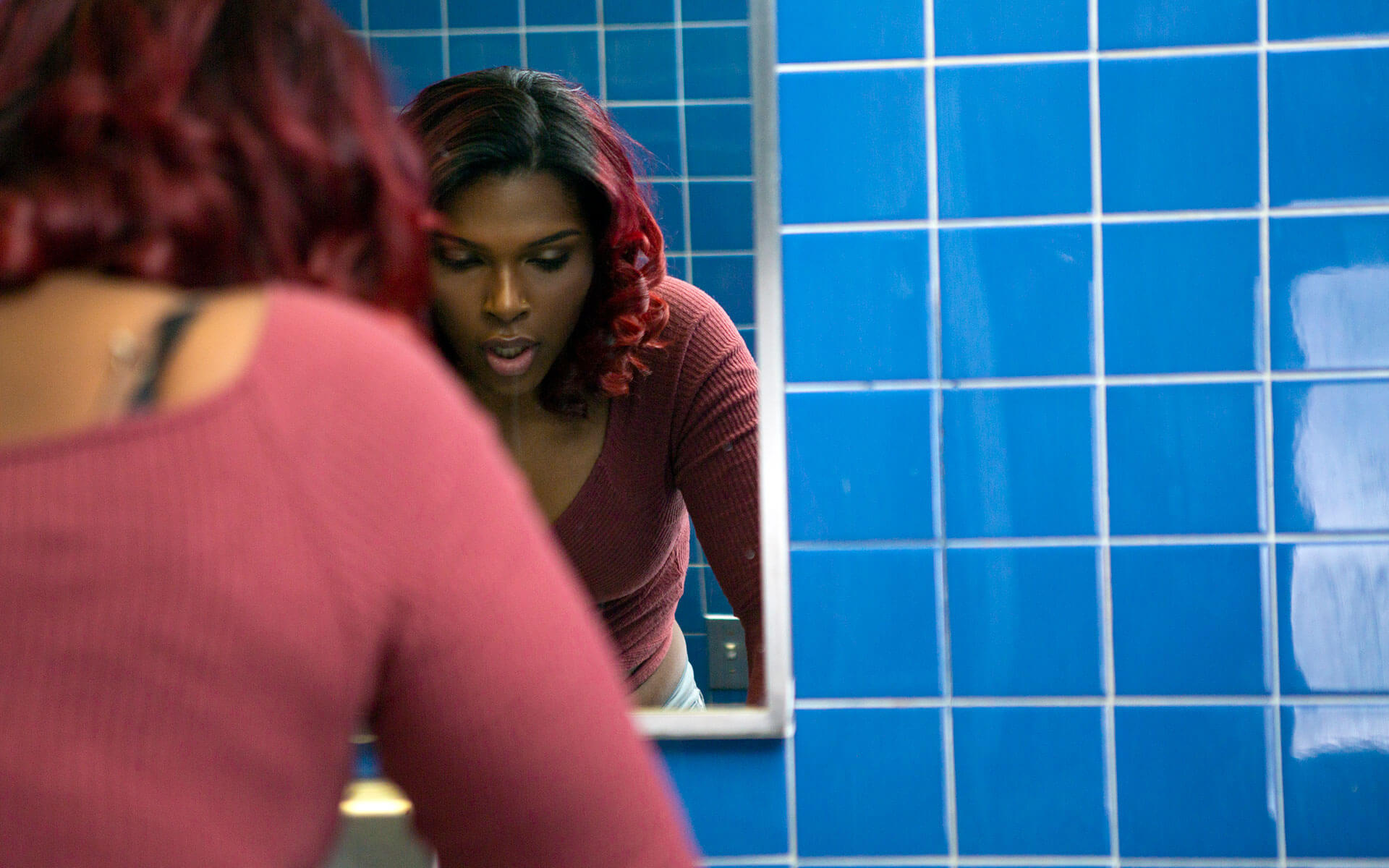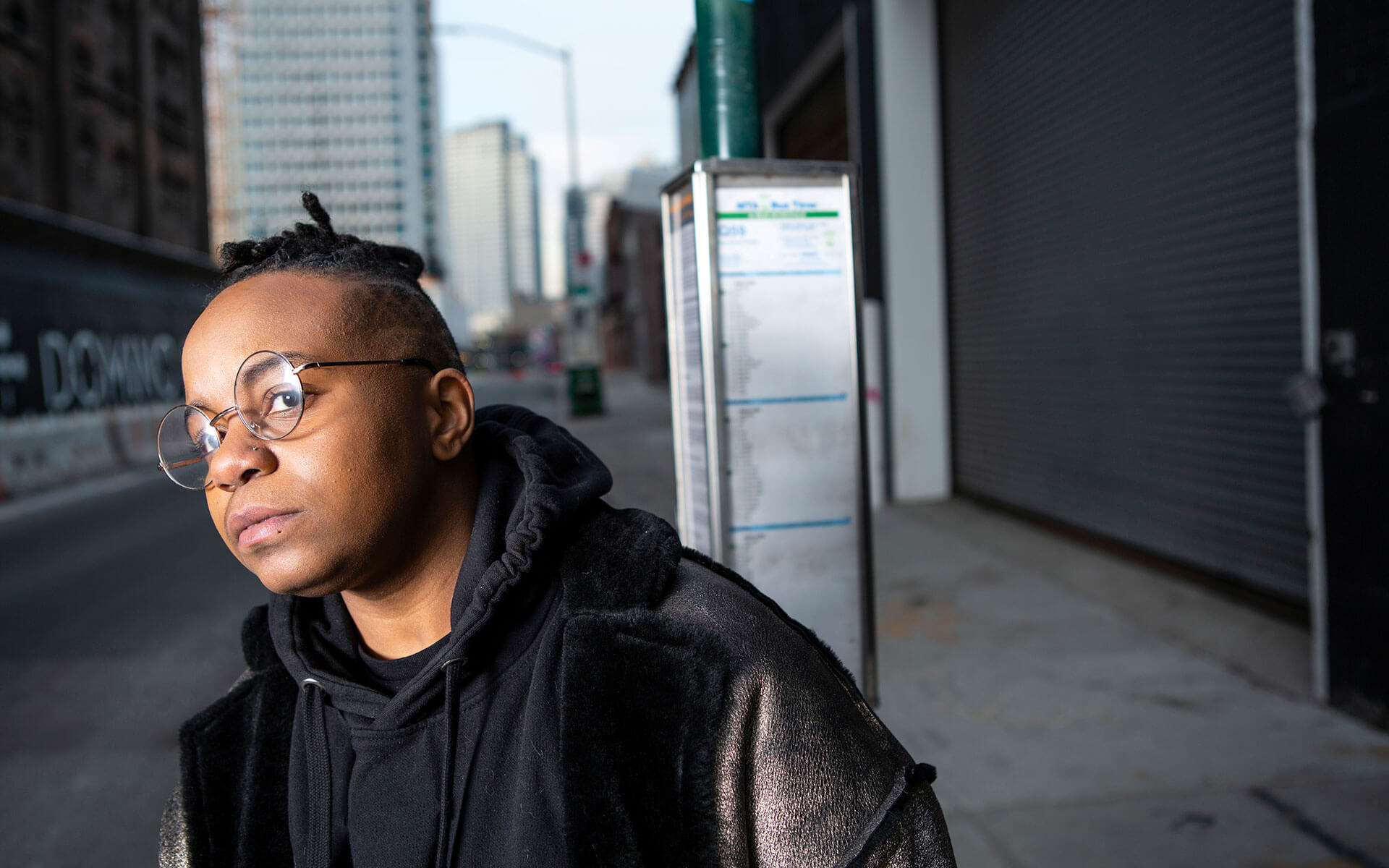Counselling grad continues to break barriers, helping trans and racialized communities
Despite a swell in anti-2SLGTQIA+ discrimination, Master of Counselling grad hopeful for more positive future
Mateo Huezo (Master of Counselling ’18) is getting used to breaking glass ceilings. Most of his adult life as a trans person of colour and his career as a registered psychologist treating people with minority stress has required overcoming one barrier after another.
When Huezo started studying at Athabasca University (AU) in 2014, he was told he was possibly the first openly trans person to go through the Master of Counselling program. He would soon discover that people like him often were not represented in the curriculum or academic literature—something he’s working to change.
“I actually won the breaking the glass ceiling award at Athabasca University while I was studying,” he says.
There’s very few people doing the same kind of work. I’ve never met another trans person of colour in Alberta who is a psychologist doing this. Mateo Huezo (Master of Counselling ’18)
Treating minority stress
Though he appreciated the award, Huezo has learned that being first doesn’t always come with a trophy. In fact, his work treating people with minority stress, which can include queer, trans, and racialized folks who’ve experienced trauma or acute stress from coming out or discrimination, can often feel isolating.
That’s especially true in a province with deep, social conservative roots and polarization around queer and trans rights.
“There’s very few people doing the same kind of work,” he explains. “I’ve never met another trans person of colour in Alberta who is a psychologist doing this.”
Breaking barriers in minority stress
Given the rise of anti-2SLGBTQIA+ discrimination in North America—from the “don’t say gay” law and washroom bans in Florida to furor in Edmonton over drag queen storytime at public libraries—it would be logical to conclude that Huezo’s services are in great demand. But that hasn’t always been the case.
“It’s gone in waves,” he explains.
“There’s been a lot more push and pressure felt by certain folks to stay in the closet, or delay coming out, delay gender transition.”
Huezo says he’s noticed that many of the patients he counsels come to him later in their lives than in previous years. Pre-pandemic, it wasn’t uncommon for people in junior high to come out as queer or trans.
“Now I’m talking to high schoolers who are holding out until they’ve graduated.”
It’s quite a change from when he came out as a 16-year-old in 2005. It was a time when “nobody would notice me because nobody knew to look for trans people.”
“That was both a blessing and a curse,” he says.
Intersection of being a trans person of colour
Huezo grew up in a Latin household—his mother is Cuban while his father is Salvadorian, a culture previously influenced by the Mayan view that gender and sexuality can be fluid.
“Through colonialism, we lost acceptance of gender and sexual diversity for a long time but a lot of folks are starting to reclaim that. And you see the parallel here [in Canada] with our First Nations, Métis, and Inuit folks in the Two Spirit resurgence.”
Huezo says his background brings an intersectional lens to his work as a therapist, and in training other health-care professionals. He often provides workshops and consulting services to health-care providers such as family physicians or psychologists wanting to better understand gender diversity and racialized communities.
“They’ll reach out and say, ‘Hey, I’m quite new to this. I’m seeing something that I’ve never seen before related to gender diversity. Can I have a consultation?’”
Related: 6 ways to support the trans community
The risk of advocating for trans community
Working in an area like minority stress and gender care isn’t without risk. Huezo says it’s easy to become a target of online harassment, and youth today are getting the message that “it’s not a safe world for them to explore their gender or their sexuality.”
There’s even risks for those who openly support gender care as an ally.
“If you stand close enough to a minority that’s getting shot at, you might get shot at yourself.”
Positivity in spite of darkness
Despite the bleakness of his admittedly violent analogy, Huezo says he’s hopeful that things will get better before they get worse.
Canadians are protected by the Charter of Rights and Freedoms, which was amended in 2017 to protect gender identity and gender expression. Alberta’s Human Rights Act also ensures Albertans cannot be discriminated against based on gender identity or expression.
“It’s really hard to undo all of that,” he says.
While Huezo would have hoped for more progress by this point in his life and career, he’s grateful to live in a place where he can provide trans care to people who need it, where 2SLGBTQIA+ rights aren’t being totally stripped away.
“We have the ability to model what an alternative to hatred looks like. So it is frustrating work, but it’s a unique position to be in at this time. And I’m not losing hope.”
Banner image: Dimitris Vetsikas from Pixabay
Open for Alberta
Read more profiles of AU learners and grads in our Open for Alberta series.

